Nutritional
Insights
Eggs are one of nature’s most nutritious foods. Two large eggs contain 16 essential vitamins and minerals and only 160 calories and an incredible amount of nutrition. The nutrition tables speak for themselves! So include eggs as part of your healthy diet!

Nutrition
Facts
Eggstraordinary Nutrition – What’s Inside Two Large Eggs!
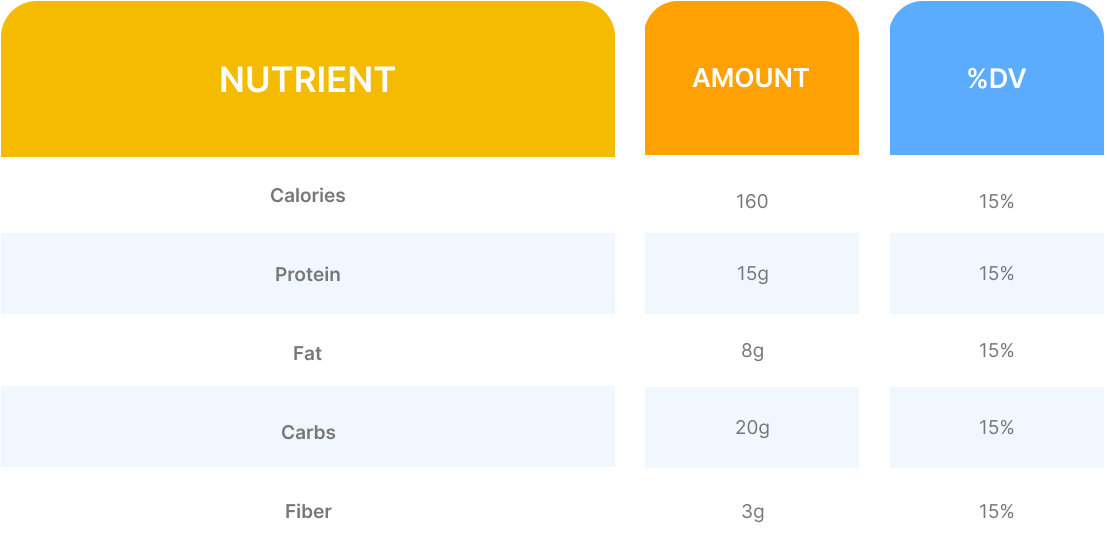
Protein Power: Why Eggs Pack a Punch
Protein plays a vital role in keeping your body strong and healthy. It helps build and repair tissues—from muscles and skin to organs, hair, and even your immune system. Eggs are especially amazing because they’re one of the few foods considered a complete protein. That means they provide all 9 essential amino acids your body can’t produce on its own.
💪 The Essential 9:
- Valine
- Tryptophan
- Leucine
- Phenylalanine
- Isoleucine
- Methionine
- Threonine
- Lysine
- Histidine
And that’s not all—eggs are also rich in other key nutrients that support energy, brain function, and more.
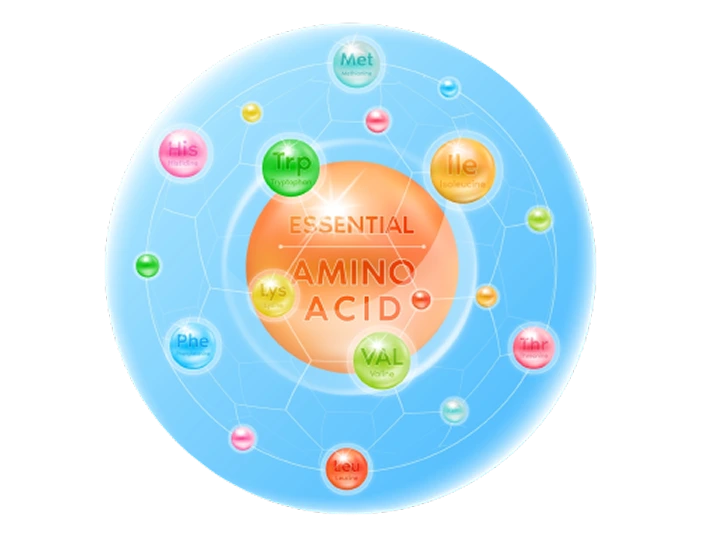
Eggs-actly What Your Eyes Need!
Egg yolks are a rich source of lutein and zeaxanthin, two powerful carotenoids (natural pigments found in plant and animal foods) known to support healthy vision. These nutrients help protect against age-related macular degeneration, a leading cause of vision loss in older adults.
What makes eggs especially eye-friendly? The healthy fats in egg yolks actually help your body absorb lutein and zeaxanthin more efficiently than from plant sources like spinach or carrots. A recent study published in the American Journal of Clinical Nutrition confirms that the bioavailability of these carotenoids is significantly higher when consumed from eggs.
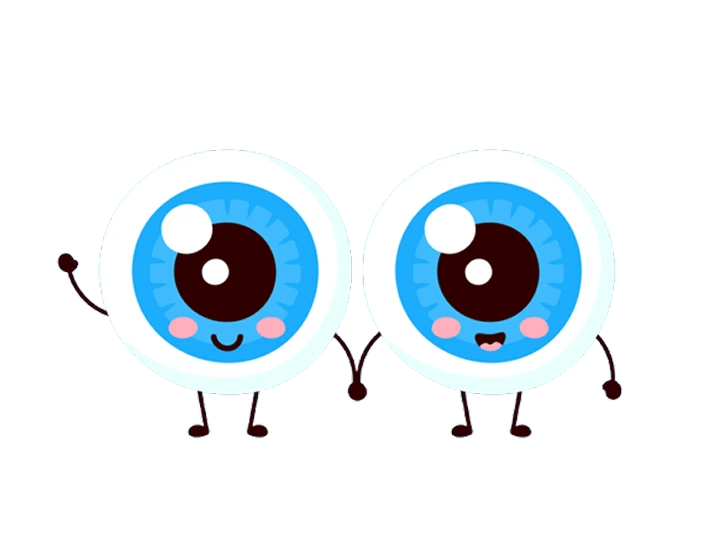
Why Eggs Are a Top-Tier Protein Choice
Eggs are a powerhouse of high-quality protein, containing all nine essential amino acids your body can’t produce on its own, making them a reliable option for meeting daily protein needs. in fact, scientists often use eggs as the benchmark for evaluating the protein quality of other foods. Protein quality is measured by biological value—a measure of how efficiently the body uses protein for growth—and eggs top the chart with a score of 93.7%. This makes them the gold standard in protein quality. In addition to being highly nutritious, eggs are also budget-friendly and can be safely stored in the refrigerator for up to three weeks without losing quality.

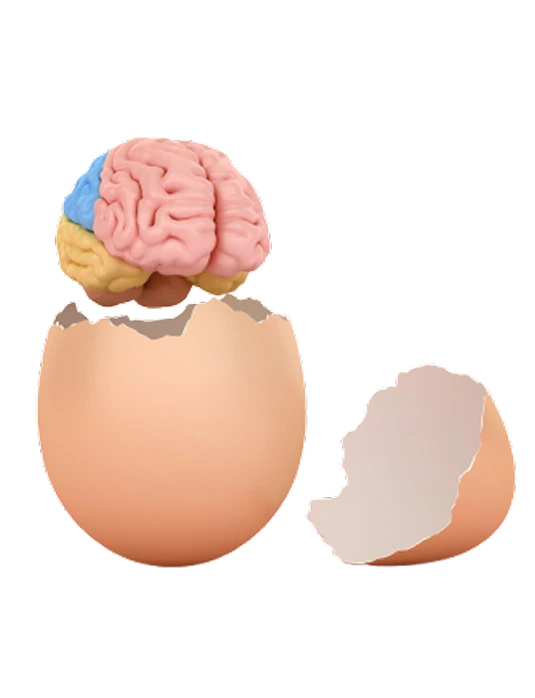
Choline: The Brain's
Best Friend!
Choline is a vital nutrient that supports brain development, memory, and focus. It plays a key role in forming neurotransmitters that help your brain send signals efficiently. Just two eggs can deliver up to 70% of your daily choline needs—making breakfast a smart place to start!
Cholesterol – Decoded
Cholesterol: Essential, Not Evil
Cholesterol is crucial for your body—it helps build cells, produce hormones, vitamin D, and aid digestion. But not all cholesterol is the same:
- LDL (Low-Density Lipoprotein) is the “bad” cholesterol that can build up in arteries and increase heart disease risk.
- HDL (High-Density Lipoprotein) is the “good” cholesterol that helps remove excess LDL from the bloodstream.
Most of your cholesterol is made by your liver, not from what you eat. For most people, foods like eggs, meat, and dairy have little effect on blood cholesterol. What’s more important is limiting saturated and trans fats, staying active, and maintaining a healthy weight.
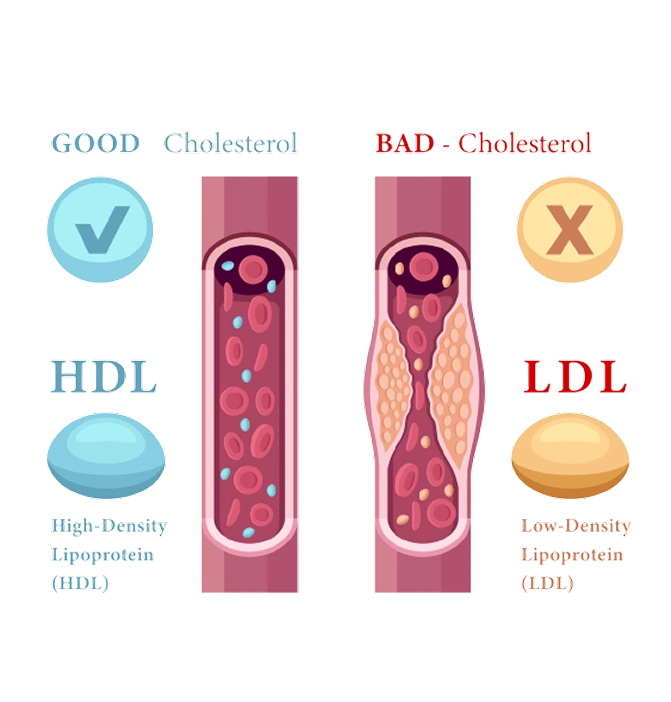

Fats: Friend,
Not Foe
Fat often gets misunderstood, but it’s actually an essential nutrient your body needs. It provides energy, supports cell growth, and helps your body absorb important fat-soluble vitamins A, D, E, and K. Fat also plays a role in helping you feel full and satisfied after meals, which can help prevent overeating.
Most people get about 30% of their daily calories from fat, which is within the healthy range. However, some individuals may consume too much—especially from the wrong types of fat. The key is quality over quantity. Health experts recommend limiting saturated fat to less than 10% of your daily intake, since high levels are linked to heart disease, obesity, and certain cancers.
One large egg contains just 5 grams of fat, including only 1.5 grams of saturated fat , and no trans fat. They’re packed with nutrients and can be part of a well-balanced diet, even for those watching their fat intake.
Omega-3: The
Brainy Fat You’ll Love!
Omega-3 fats are a type of polyunsaturated fat that your body needs for good health at every stage of life. They play a vital role in cell membranes, help reduce inflammation, and support the health of your heart, brain, eyes, and immune system.
There are three main types of omega-3s:
- ALA (alpha-linolenic acid) – found in plant sources like flaxseed, walnuts, and canola oil
- EPA (eicosapentaenoic acid) and DHA (docosahexaenoic acid) – found in fatty fish and omega-3 enriched foods
DHA, in particular, is crucial in early life for the development of the brain, eyes, and nerves in children—and it continues to support cognitive and mental health as we age. Health experts recommend a daily intake of 500 mg of DHA and EPA combined for adults. However, many people fall short because these fats are mostly found in fatty fish like salmon, mackerel, sardines, and tuna. Luckily, omega-3 enriched eggs, such as Omega Plus, are a convenient alternative for getting these essential nutrients—especially if you don’t eat much fish.
Adding omega-3-rich foods to your diet is a smart way to support overall wellness—from heart to head.
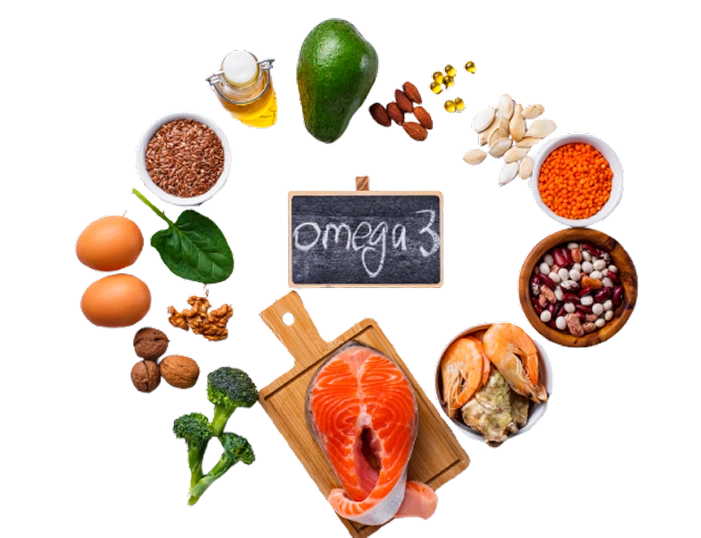
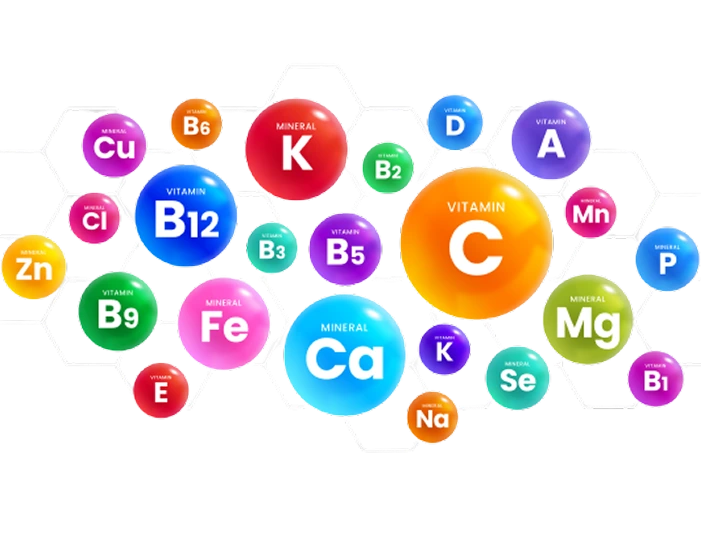
Vitamins & Minerals:
Your Daily Health Heroes
These tiny nutrients pack a powerful punch! Here’s how they help your body stay strong, energized, and healthy:
- Vitamin A – Supports healthy skin, eyes, and night vision
- Vitamin D – Strengthens bones and teeth by helping absorb calcium
- Vitamin E – Acts as a powerful antioxidant, protecting cells
- Thiamine (B1) – Helps turn carbs into energy
- Riboflavin (B2) – Aids in protein metabolism
- Niacin (B3) – Releases energy and supports healthy nerve function
- Vitamin B6 – Helps the body use protein and build tissues
- Folate & Vitamin B12 – Essential for making red blood cells
- Pantothenic Acid – Supports energy metabolism and tissue building
- Calcium & Phosphorus – Build strong bones and teeth
- Magnesium – Aids in energy use and supports muscle and bone health
- Iron – Carries oxygen in the blood and keeps it healthy
- Zinc – Helps with energy use and tissue repair
- Iodine – Keeps your thyroid functioning properly
These nutrients may be small, but they play huge roles in your overall
health—every single day!
